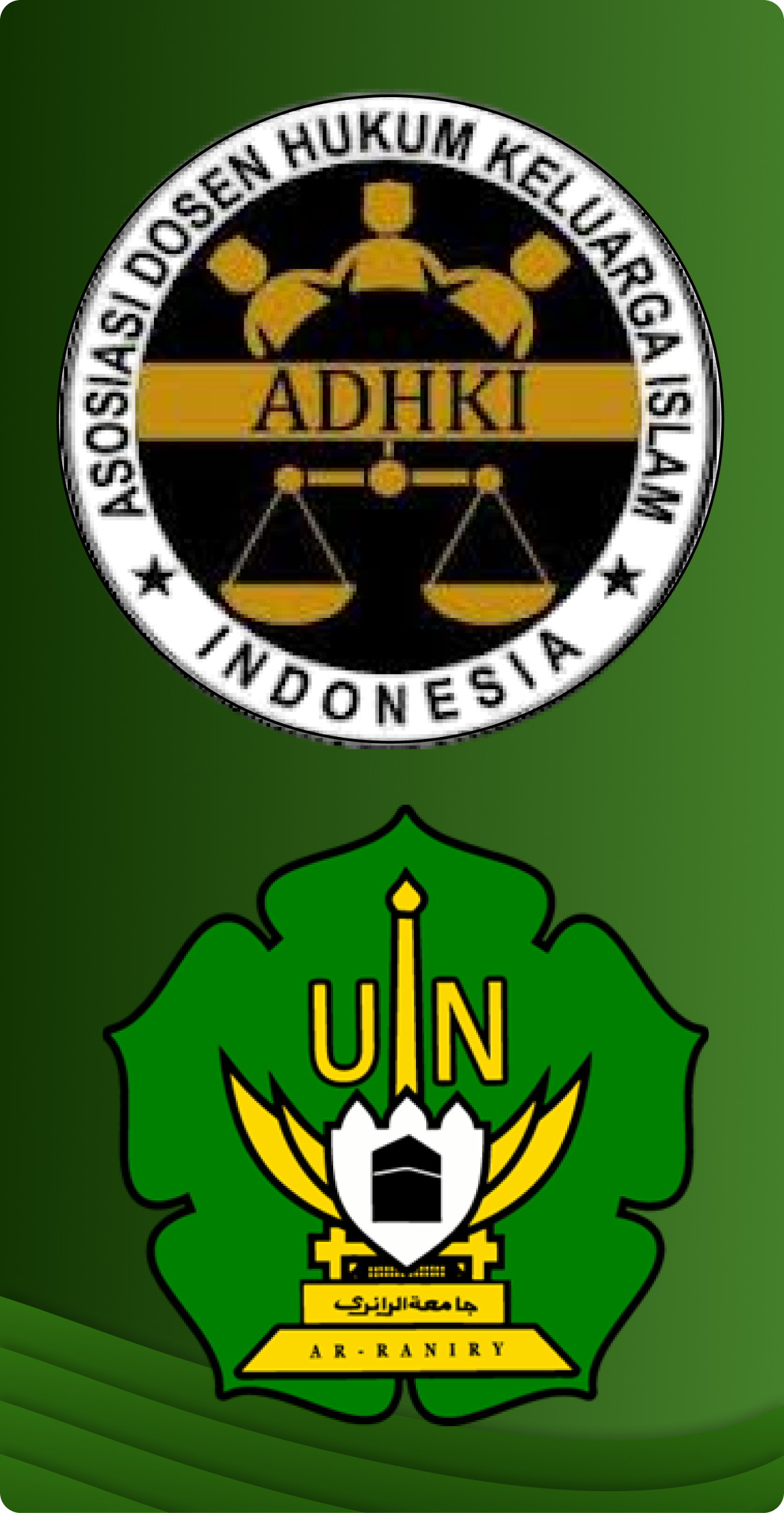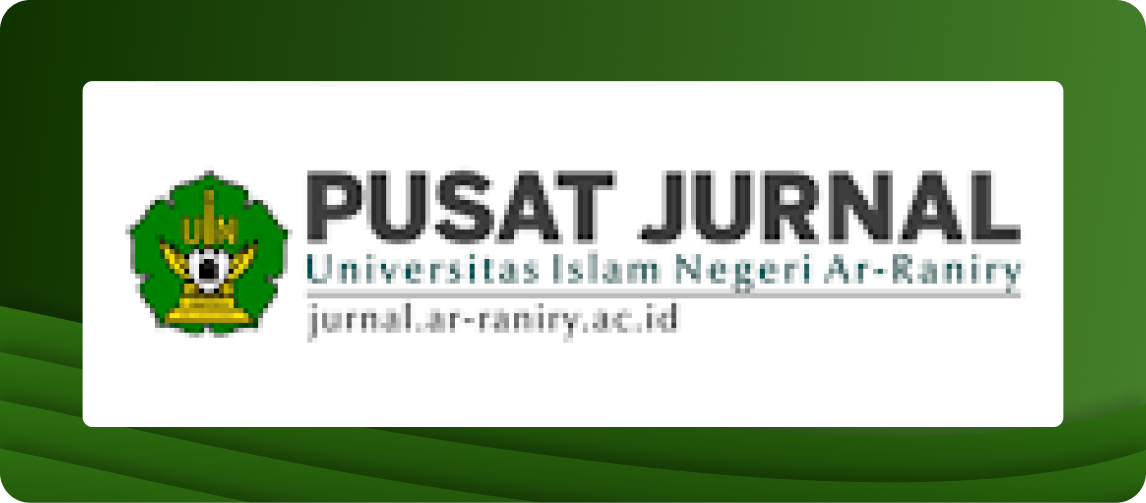Tawakal and Life Optimism for Divorced Married Couples: A Case Study in Medan, Satria Village, Bekasi City, West Java Province
DOI:
https://doi.org/10.22373/ujhk.v6i2.20000Keywords:
Tawakal, Divorce, Optimism in Life, Islamic LawAbstract
Marriage is a relationship between a man and a woman that is commanded in Islam. Among the purposes of marriage is to meet the various primary needs of human beings so that they can lead a better, calm and purposeful life (litaskunu ilaiha). However, along the way, there are often various problems that in some cases lead to divorce or separation. Divorce occurs due to various problems in the marriage, causing trauma, depression, loss of optimism in life and so on. The various negative impacts of divorce must certainly be faced in various ways so that the person concerned can rise from all the lags to continue to realize various plans and targets in his life. This research uses empirical legal methods using Islamic legal approaches as an analytical tool. Data were collected using in-depth interviews and documentation studies, interviews with informants of divorced parties both husband and wife. The informants in this study consisted of 5 people distinguished by 3 females and 2 males. The research concludes that trust is an important instrument in increasing faith after divorce. The majority of respondents said that putting their trust in post-divorce can increase faith. The informant said that post-divorce trust has an important role in strengthening self-mentality, increasing resilience, and building a positive mindset.
References
Journals and Books
A.N Ubaedy, Kedahsyatan Berpikir Positif. Depok: Visi Gagas Komunika, 2007.
Adijie, Anita, “Bagaimana Dampak Perceraian Secara Psikologis,” 2022.
Aizid, Rizem. Melawan Stress Dan Depresi, Yogyakarta: Saufa, 2015.
Al-Ghazali, Imam, Ihya Ulumuddin, Jilid 4. Mesir: Dar al-Ihya al-Kutub al-Arabiyah, n.d.
Al-Jauziyah, Ibnu Qayyim. Madarij Al-Salikin Bain Manazil Iyyaka Na’budu Wa Iyyaka Nasta’in. Beirut: Darul Fikr, 1989.
Al-Munawwir, Ahmad Warson, Kamus Al-Munawwir Arab-Indonesia Terlengkap. Yogyakarta: Pustaka Progressif, 1997.
Al-Qusyairi, Imam, Al-Risalah Al-Qusyayriyah Fi Ilm Al-Tashawwuf. Mesir: Dar al-Jawami’ Al-Kalam, 1940.
Alba, Cecep, Tasawuf Dan Tarekat. Bandung: PT. Remaja Rosda Karya, 2014.
Anom, Lilik Suryo, Hypno Soulmate, Jakarta: Visi Media, 2010.
Basri, Mu’inudunillah, “Indahnya Tawakal, Publikasi Ilmiah,” 2008.
Djawas, Mursyid, et.al., “The Government’s Role in Decreasing Divorce Rates in Indonesia: The Case of Aceh and South Sulawesi,” Ahkam: Jurnal Ilmu Syariah 21, No. 1 (2021). DOI: 10.15408/ajis.v21i1.20870.
Findiani, Era. The Book Of Meredam Stres: Cara Paling Serius Untuk Menghadapi Stres Dan Depresi Dalam Sekejap, Yogyakarta: Psikologi Corner, 2022.
Garwan, Irma et.al., “Tingkat Perceraian Dan Pengaruh Faktor Ekonomi Di Kabupaten Karawang.” Jurnal Ilmiah Hukum, 2018.
S. Praja, Juhaya, Teori Hukum dan Aplikasinya (Bandung: Pustaka Setia, 2020).
Hamka, Tafsir Al-Azhar, Jilid II. Depok: Gema Insani, 2015.
Handoyo, A. Meditasi Dan Pencerahan Dini. Jakarta: Elex Media Kompotindo, 2005.
Hatifah, Siti, and Dzikri Nirwana. “Pemahaman Hadis Tentang Optimisme.” Jurnal Studia Insania 2, no. 2 (2014). https://doi.org/10.18592/jsi.v2i2.1096.
Kamal, Musthafa. Be Optimistic 25 Alasan Mengapa Harus Optimis, Jakarta: Cakrawala Publishing, 2012.
Kamal Kamal, “Tawakkal dalam Islam,” Jurnal Sipatokkong BPSDM Sulsel 3, No. 4 (2023). DOI:10.58643/sipatokkong.v3i4.183.
Muhammad, Sopian. Rahasia Di Balik Rahasia, Jakarta: Cakrawala Publishing, 2011.
Muvid, Muhamad Basyrul, Tasawuf Kontemporer. Jakarta: Amzah, 2020.
Nisa, Martina Purna, “Critical Review of Domestic Violence as Reason for Divorce (Comparison of Divorce Laws in Indonesia, Malaysia and the Maldives),” al-Ihkam: Jurnal Hukum dan Pranata Sosial 16, No. 1 (2021). Doi.org/10.19105/al-lhkam.v16i1.4292.
Nurmiati, et.al.,"Nilai Tawakal dalam Al-Qur'an,” Palita: Journal of Social Religion Research 6, No. 1 (2021).
Rahmawati, Fitria, “Angka Perceraian Di Bekasi Naik Signifikan Saat Pamdemi,” 2022.
Setiawan, Dede, and Silmi Mufarihah. “Tawakal Dalam Al-Qur’an Serta Implikasinya Dalam Menghadapi Pandemi Covid-19.” Jurnal Studi Al-Qur’an 17 (2021). DOI: https://doi.org/10.21009/JSQ.017.1.01.
Supriyanti. Tawakal Bukan Pasrah, Jakarta: Qultum Media, 2010.
Thohir, Umar Faruq, “Konsep Tawakkal Dalam Perspektif Pasangan Perkawinan Anak Di Desa Wedusan Probolinggo Jawa Timur.” Jurnal Hukum Islam 17, No. 2, (2019).
Tim Gue sehat. “Dampak Perceraian Terhadap Psikologis Wanita,” 2022.
Umar, Nasaruddin, Maqam-Maqam Spiritual Pendakian Menuju Tuhan, Jakarta: Media Indoensia Publishing, 2018.
Yunus, Mahmud. Kamus Arab Indonesia, Jakarta: Yayasan Penyelenggara Penterjemah Al-Qur’an, 1937.
Interviews
Interview with Evi, a divorced woman from her husband, Medan Satria, 2022.
Interview with Nana, a divorced woman from her husband, Medan Satria, 2022 Interview with Siti, a divorced woman from her husband, Medan Satria, 2022. Interview with Agus, a man who is divorced from his wife, Medan Satria, 2022.
Interview with Akbar, a man who divorced his wife, Medan Satria, in 2022.
Downloads
Published
Issue
Section
License
Authors who publish in El-Usrah: Jurnal Hukum Keluarga agree to the following terms:
Authors retain copyright and grant the journal right of first publication with the work simultaneously licensed Attribution-ShareAlike 4.0 International (CC BY-SA 4.0) that allows others to share the work with an acknowledgment of the work's authorship and initial publication in this journal.
Authors are able to enter into separate, additional contractual arrangements for the non-exclusive distribution of the journal's published version of the work (e.g., post it to an institutional repository or publish it in a book), with an acknowledgment of its initial publication in this journal.
Authors are permitted and encouraged to post their work online (e.g., in institutional repositories or on their website) prior to and during the submission process, as it can lead to productive exchanges, as well as earlier and greater citation of published work. (See The Effect of Open Acces)

















